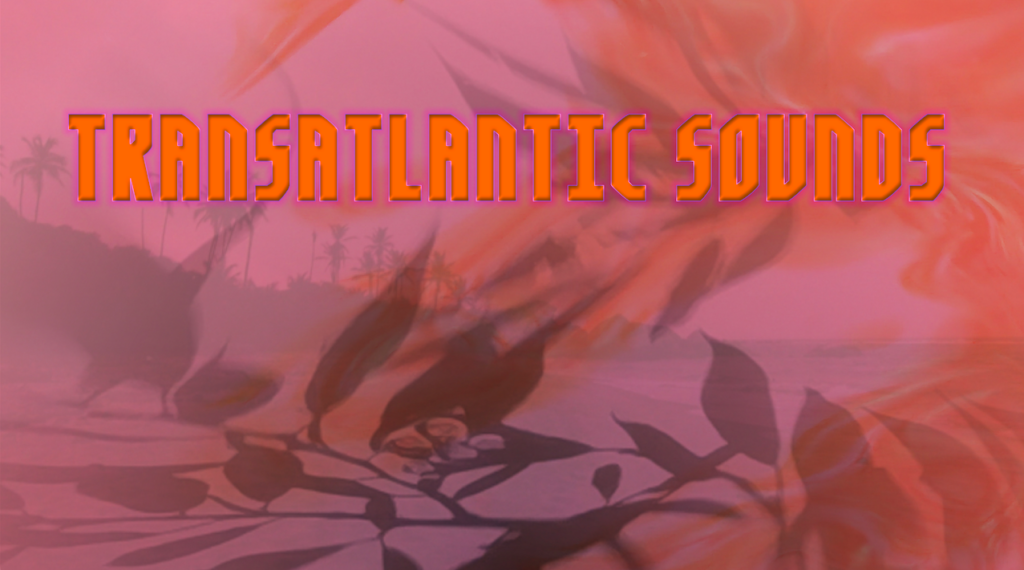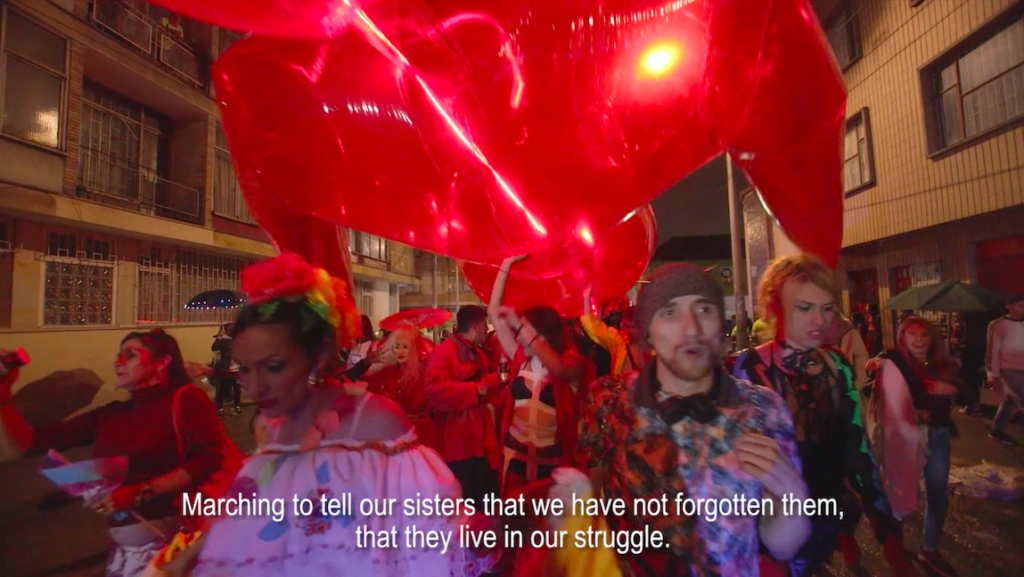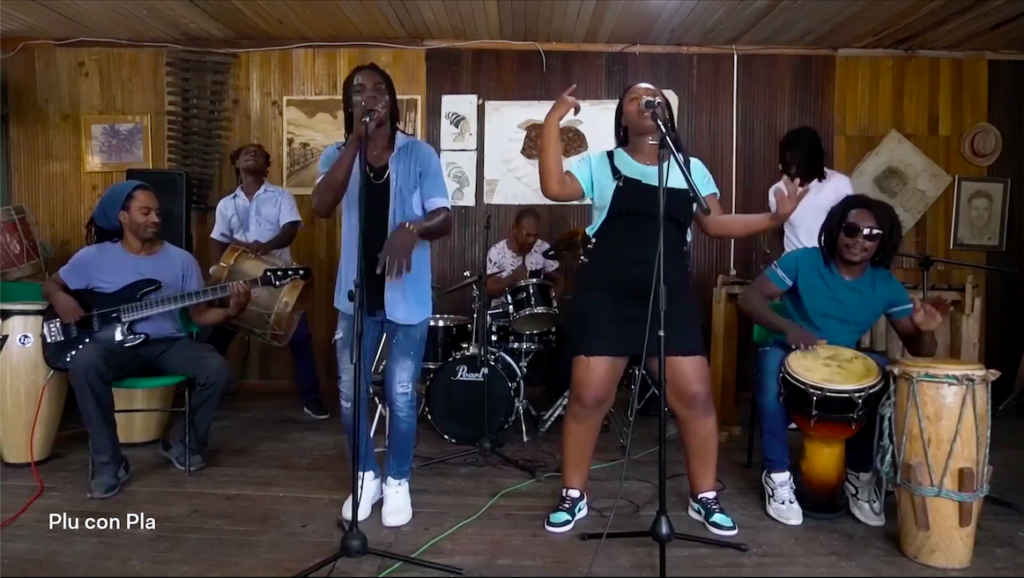TRANSATLANTIC SOUNDS
Dear reader, in your hands you hold a document that is the result of a political and artistic space of reflection and diasporic experimentation of personal and collective empowerment: a marathon that we called ‘Transatlantic Sounds: What would you say if I told you that our black history has been denied?’ This marathon materialized the desire to create a transversal space for listening, denouncing, reflecting, meeting, and loving. A space to socialize a history and those realities that are difficult to share; the transatlantic ones. In these pages you will find notes on pain and transformation, oppression, disconnection, Black history, silence and wounds, permeability and healing. Notes that narrate, sing or perform realities of territories such as Tumaco, Magüi Payán, Cali, Cartagena, Bogota in Colombia, Santo Domingo in the Dominican Republic, the Venezuelan Caribbean, Dakar in Senegal and Berlin.
Disconnection is a device of colonial domination that takes away our voice and keeps alive and continues a heritage of domination, oppression and exclusion. The repression and denial of our ways of inhabiting the world and of our diverse corporalities have been a device for controlling our bodies and our history. Nonetheless, the use of our voice and the expression of our corporalities bring with them disobedience.
The African diaspora carries pain but also embraces transformation. Against the backdrop of trauma and violence, diasporic movements turned the Atlantic into a tunnel of cultural exchanges, where different Africas met the Caribbean, the Atlantic and the Pacific coast of Abya Yala as Indigenous people call the pre-colonized territory of what today is referred to as the American continent. They have been laying the foundations of an “encounter” that is reflected in dance, ritual practices, popular religiosity, musical instruments, drums, percussion, languages, beliefs. These manifestations have been undervalued, diluted and racialized by colonial structures of power, generating disconnections between afro-diasporic communities and a part of history – the history of the Black Atlantic.
To recognize ourselves as a diaspora is to be aware that we are the result of fragmentations, ruptures and movements that are part of a historical contingency resulting from colonialism, which extends to the present through our existence, through ourselves, who we are today. This recognition reveals to us the denial of our diverse origins that still persists, which, in turn, generates a tremendous silence that denies the diaspora located in both the global south and the global north from hearing their history in full, from communicating. It is in this silence that we find wounds and disconnections.
Abya Yala, the Caribbean and Afrika are connected by tectonic plates, by the oceans, by marine and air streams, by the movement of the sun. We are united by the stars, the earth and our shamans. We belong to the South. To the South that is exploited and stolen. We are also united by the restrictions on our mobilization in a system where the flow of capital, raw materials and information is free, but restricted to individuals, established by a regime of disconnections-connections organized by the colonial powers that want to decide how and when these connective decisions are made. We are diaspora! We are diaspora and we refuse this disconnection! We rebel against it! We are also the drum that was played in Colombia, but not heard in Senegal. We were disconnected and we want to reconnect and celebrate this connection, as a form of reparation.
Transatlantic sounds is a journey that allowed us to create a safe space of love, recognition and gathering in which each of us (contributors, organizers and participants) could express ourselves freely. It is a moment of mutual understanding and celebration of a politics of diasporic togetherness, rebellion and fragility embodied in the acts of being and sharing. Freedom and fragility can empower and therefore be healing.
Transatlantic sounds is also an exercise of listening and respect, two fundamental principles for constructing reparation. Reparation can be the way to close the colonial wound, to bring us closer and if it is the case to heal. But we must not forget that healing is also a violent act, it is to recognize the pain, it is to embrace the pain in order to let it go.
Transinflable Requiem – Red Comunitaria Trans
Transinflable project (2018-2019). A project carried out by: La Red Comunitaria Trans in cooperation with Daniela Maldonado, Tomás Espinosa, Artúr van Balen and Juan David Cotés
***
“What would you say if I told you that our Black history has been denied?” was a digital marathon, a living archive of sounds, voices, and experiences of diasporic musicians, artists, and activists from Senegal, the Caribbean, Colombia, and Berlin.
This document was compiled in response to this sound marathon that took place in the event, Healing (Faju): Part 1 which occurred in February 2020 online. The entire sound marathon can be seen here: https://www.youtube.com/watch?v=jLOPNz5DP70&t=76s
The following link will lead you to a document (in both English and Spanish) that holds a collection of accounts, poetry, prose, and accompanying sounds.
If you need help navigating the document and the audio files, see the guide here (only in English).
Layout concept and design: Alejandra Montoya
Editors of the blog Healing / New Alphabet School: Alessandra Pomarico, Esther Poppe, Olga Schubert, and Savannah Turner
***
Plu con Pla performing in the context of Healing (Faju): Part 1


